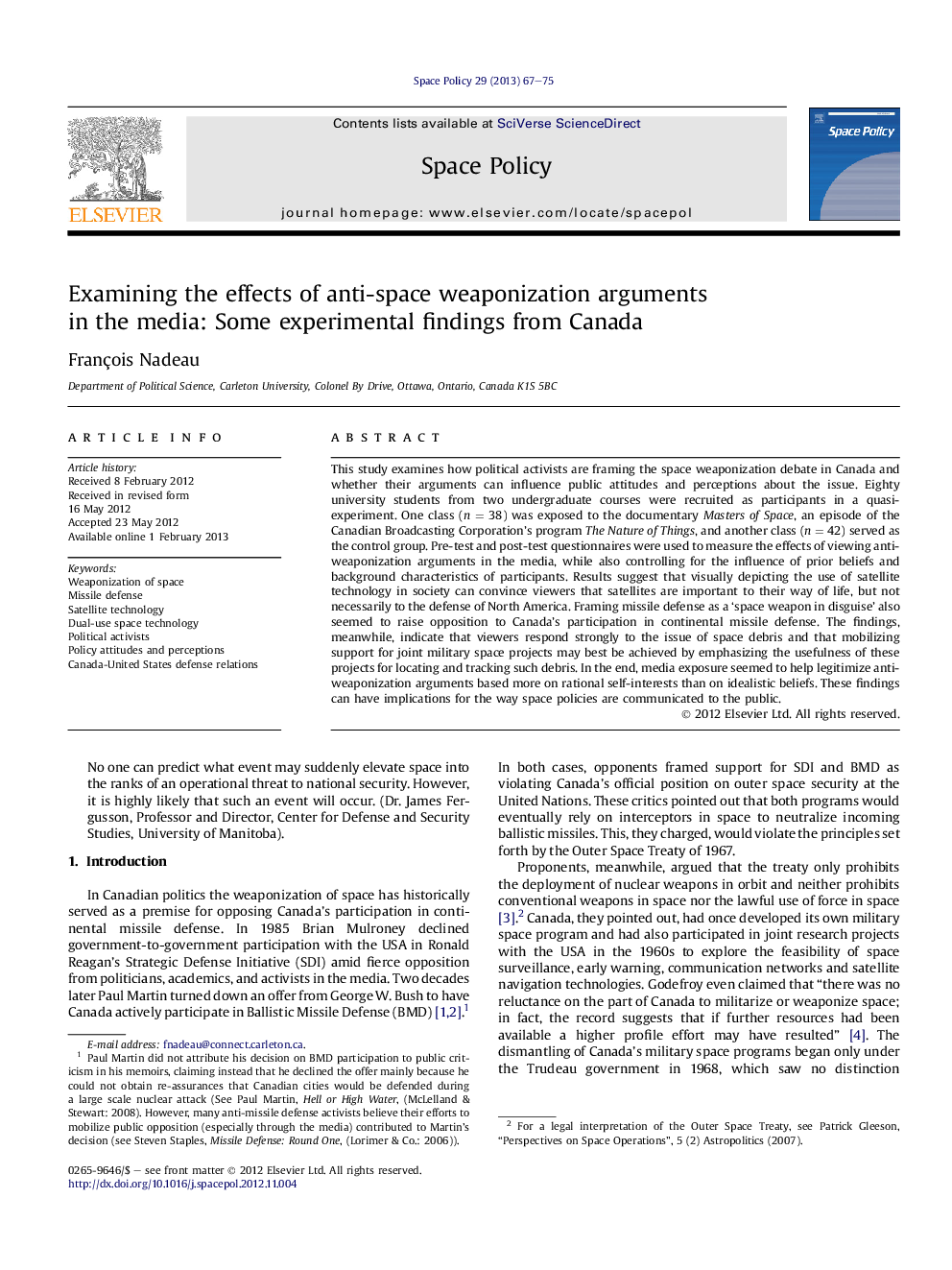| کد مقاله | کد نشریه | سال انتشار | مقاله انگلیسی | نسخه تمام متن |
|---|---|---|---|---|
| 10522309 | 955492 | 2013 | 9 صفحه PDF | دانلود رایگان |
عنوان انگلیسی مقاله ISI
Examining the effects of anti-space weaponization arguments in the media: Some experimental findings from Canada
ترجمه فارسی عنوان
بررسی اثرات استدلال های تسلیحات ضد فضایی در رسانه ها: برخی یافته های تجربی از کانادا
دانلود مقاله + سفارش ترجمه
دانلود مقاله ISI انگلیسی
رایگان برای ایرانیان
کلمات کلیدی
تسلیحات فضایی، دفاع موشکی، فن آوری ماهواره ای، فناوری فضایی دوتایی، فعالان سیاسی، نگرش ها و ادراکات سیاست، روابط دفاعی کانادا و ایالات متحده،
موضوعات مرتبط
علوم انسانی و اجتماعی
علوم اجتماعی
جامعه شناسی و علوم سیاسی
چکیده انگلیسی
This study examines how political activists are framing the space weaponization debate in Canada and whether their arguments can influence public attitudes and perceptions about the issue. Eighty university students from two undergraduate courses were recruited as participants in a quasi-experiment. One class (n = 38) was exposed to the documentary Masters of Space, an episode of the Canadian Broadcasting Corporation's program The Nature of Things, and another class (n = 42) served as the control group. Pre-test and post-test questionnaires were used to measure the effects of viewing anti-weaponization arguments in the media, while also controlling for the influence of prior beliefs and background characteristics of participants. Results suggest that visually depicting the use of satellite technology in society can convince viewers that satellites are important to their way of life, but not necessarily to the defense of North America. Framing missile defense as a 'space weapon in disguise' also seemed to raise opposition to Canada's participation in continental missile defense. The findings, meanwhile, indicate that viewers respond strongly to the issue of space debris and that mobilizing support for joint military space projects may best be achieved by emphasizing the usefulness of these projects for locating and tracking such debris. In the end, media exposure seemed to help legitimize anti-weaponization arguments based more on rational self-interests than on idealistic beliefs. These findings can have implications for the way space policies are communicated to the public.
ناشر
Database: Elsevier - ScienceDirect (ساینس دایرکت)
Journal: Space Policy - Volume 29, Issue 1, February 2013, Pages 67-75
Journal: Space Policy - Volume 29, Issue 1, February 2013, Pages 67-75
نویسندگان
François Nadeau,
